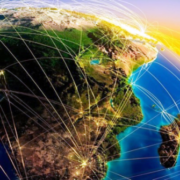Introduction
In today’s digital age, cybersecurity has become a crucial concern for nations across the globe, and Nigeria is no exception. As the country continues to embrace technological advancements, the need for robust cybersecurity measures has never been more pressing. The growing reliance on digital platforms for commerce, communication, and governance has exposed Nigeria to an array of cyber threats, making cybersecurity a national priority.
The State of Cybersecurity in Nigeria
Cybersecurity in Nigeria is at a critical juncture. According to data from the National Bureau of Statistics (NBS), Nigeria recorded over 3,500 cyberattacks in 2022 alone, resulting in financial losses exceeding ₦12 billion. This alarming statistic underscores the vulnerability of the country’s digital infrastructure and the urgent need for comprehensive cybersecurity strategies. The rise in cybercrime, particularly phishing, ransomware, and data breaches, has highlighted the gaps in Nigeria’s cybersecurity framework.
Expert Insights from Taofeek Olayinka Agboola
Drawing from the expertise of professionals like Taofeek Olayinka Agboola, a seasoned cybersecurity specialist with extensive experience in endpoint analysis, network security, and vulnerability assessments, it is clear that the challenges Nigeria faces in the cybersecurity domain are both complex and multifaceted. With a Master’s degree in Cybersecurity from Stephen F. Austin State University and a wealth of practical experience gained from roles at organizations such as F2ONSITE and Grand Cereals Limited, Agboola’s insights are invaluable for understanding the current state of cybersecurity in Nigeria and the steps that must be taken to fortify our digital defenses.
Endpoint Security and Network Monitoring
Taofeek’s career trajectory highlights the importance of a multi-layered approach to cybersecurity. His work in endpoint analysis, utilizing tools such as SentinelOne and Malwarebytes, underscores the critical need for protecting individual devices within a network—a weak point that cybercriminals often exploit. Furthermore, his experience with network monitoring tools like Splunk and Microsoft Sentinel reflects the necessity of continuous vigilance in detecting and responding to threats in real-time. These capabilities are vital for any nation, particularly Nigeria, where the rapid digitization of various sectors has outpaced the development of corresponding security protocols.
Cloud Security and Adoption
In his role at LOG(N) Pacific, Taofeek was instrumental in implementing secure cloud configurations using Microsoft Azure, reducing security incidents by over 30%. This experience is particularly relevant as Nigeria moves towards greater cloud adoption, driven by initiatives to digitize government services and expand internet access. According to NBS, cloud service adoption in Nigeria’s public sector grew by 18% in 2023, reflecting the government’s push towards digital transformation. However, this growth also brings increased risks, as seen in the rise of cloud-based cyberattacks. The lessons from Agboola’s work demonstrate that while cloud platforms offer scalability and convenience, they also require stringent security measures to protect sensitive data from breaches and unauthorized access.
Challenges and the Way Forward
Nigeria’s public and private sectors must take heed of these insights as they navigate the challenges of securing digital infrastructure. The nation’s cybersecurity strategy should not only focus on building technical capabilities but also on fostering a culture of cybersecurity awareness. As Taofeek has shown through his leadership in cybersecurity awareness programs, educating users about the risks and best practices is an essential component of a comprehensive cybersecurity strategy. This approach can significantly reduce the human error factor, which remains one of the most significant vulnerabilities in any cybersecurity framework.
However, the journey towards a secure digital Nigeria is fraught with challenges. The country must overcome several hurdles, including the shortage of skilled cybersecurity professionals, inadequate investment in cybersecurity infrastructure, and the slow pace of regulatory development. To address these issues, Nigeria must prioritize cybersecurity education and training, encourage public-private partnerships, and adopt international best practices in cybersecurity governance.
Conclusion
In conclusion, the insights and experiences of cybersecurity professionals like Taofeek Olayinka Agboola provide a roadmap for strengthening Nigeria’s cybersecurity posture. By adopting a holistic approach that includes robust technical measures, continuous monitoring, and widespread awareness, Nigeria can better protect itself against the growing tide of cyber threats. As we continue to build our digital future, let us remember that cybersecurity is not just a technical challenge but a societal one that requires collective effort and vigilance.
Only through concerted efforts can Nigeria safeguard its digital assets and ensure a secure environment for its citizens and businesses to thrive.
Contact Information:
- Name: Taofeek Olayinka Agboola
- Phone: +1 (936) 244 1529
- Email: [email protected]
- LinkedIn: Taofeek Agboola





























